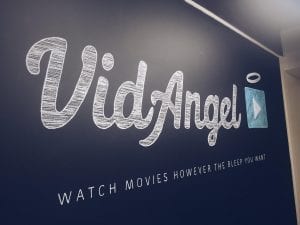Copyright in 2020 (And Beyond)
A new year, a new decade, same ol' copyright...

2019 ended the year, and the decade, with a headline-grabbing copyright story as a jury found Cox Communications liable to the tune of $1 billion for its failure to comply with the Digital Millennium Copyright Act (DMCA) safe harbor rules.
According to the RIAA, which filed the lawsuit, Cox was flouting the DMCA requirements that it terminate the accounts of repeat infringers, adopting a “thirteen-strike” policy that still did not result in termination of the said infringer. Even worse for Cox, it placed limits on the number of copyright notices that rightsholders could file, causing the RIAA to argue that it was willfully blinding itself to the infringements taking place on its service.
In spite of the evidence against Cox, the verdict and its amount have been heavily criticized as being out of step with the alleged offense. Others, however, have noted that the $1 billion verdict is, almost certainly, just a small fraction of the money Cox made from the customers it held onto.
Either way, it’s unlikely that $1 billion will be the amount Cox pays. It’s likely that the verdict amount will be adjusted post-trial or on appeal. It’s also probable that the two sides will settle for a vastly different, though undisclosed, amount, as Cox did with BMG.
However, the case is still an important one. The reason is that it is part of a larger trend of courts showing increased skepticism toward technology companies. It’s been a process over the past 15 plus years but has ramped up drastically in the past few as we discussed back in June.
So this raises a simple question: What’s next? With a new year and a new decade, where will these trends take us? The answer, obviously, is very complicated but there are definitely a few things to watch out for…
1: Supreme Court Rulings

To start off with an easy one, 2020 is going to be a year of several key Supreme Court decisions.
First and foremost is the Oracle v. Google case. This one sees Oracle suing Google over Google’s implementation of Java in its Android mobile operating system. Though Google rewrote the language from the ground up, it used the same APIs to ensure compatibility with old apps written in Java. This raised questions on whether APIs can be protected by copyright and, if they can, is their use is a fair use.
After ping-ponging around lower courts, the Supreme Court agreed to take the case in November and we should have a judgment in 2020. This judgment could have significant ramifications for software development and help set boundaries for copyright protection in code.
However, that’s far from the only big copyright ruling on the horizon. The Supreme Court is also slated to rule on whether states can be held liable for copyright infringement and whether states can use copyright to protect elements of their legal code.
2020 is going to be a banner year for copyright at the Supreme Court, that much is very clear.
2: Small Claims

2019 seemed like it might be the year in which the United States passes a copyright small claims court. The CASE Act was (and is) very popular with both parties and aims to help creators and artists pursue smaller infringements that aren’t practical today.
But, despite being overwhelmingly approved in the House, the bill has largely stalled in the senate. However, the bill has failed to come to a full vote in the Senate due to a hold placed on it by Senator Ron Wyden.
Due to that hold, it seems unlikely that it will pass as Sen. Wyden has made his opposition to the bill very clear.
But the strong support for it across the aisle means that this, most likely, is not a dead issue. The CASE Act itself is largely a rewrite of the FASC Act of 2016 and there’s little reason to think there won’t be another version soon.
Whether it’s in 2020 or later in the decade is difficult to say, but this is an issue that rightsholders are motivated on and have strong support in Congress to address.
3: Public Domain Battles

This one isn’t so much a 2020 issue as it is for later in the decade, but it’s a simple fact that, as of January 1, 2019, works began entering the public domain again in the United States.
The twenty-year moratorium on new public domain entrants was because of the Copyright Term Extension Act. Passed in 1998, the act extended the copyright term 20 years, making it life plus 70 years for works of individual authorship and 95 years from publication (or 120 years after creation) for works of corporate authorship.
This meant that, for most of my life, new works didn’t enter the public domain in the United States, a process that just resumed in early 2019. However, the early crops of newly-public domain works haven’t been very inspiring with every few commercially-relevant works lapsing.
That changes toward the middle of the decade as, in 2024, Steamboat Willie, the first Mickey Mouse cartoon, will enter the public domain. While this doesn’t mean anyone will be able to sell Mickey Mouse merchandise, it does set the stage for battles to determine exactly what that means.
We’ve seen some of this already with Sherlock Holmes, but things are going to pick up in this area in short order. However, most people likely figured this out already as there are rumors that Disney remakes extend the copyright of the original work (which they don’t).
4: The Pushback Against Tech

In the 2000s, tech companies seemed as if they could do no wrong in courts The Perfect 10 v. Google case became a landmark ruling that not only established Google Image Search as a fair use, but created the “server test”, which made embedding infringing material not the same as uploading it to your server.
However, in 2018 that was upended as a New York district court went against the Ninth Circuit, ruling that an embedded tweet could be infringing and the embedder, not just the original uploader, could be held liable.
As the decade dragged on, courts viewed tech companies with increased skepticism. This included Aereo’s attempt to create an unlicensed cable network, VidAngel’s attempt to create an unlicensed family-friendly streaming platform, and, most recently, Cox’s flouting of the DMCA.
It’s clear that the honeymoon between the courts and the tech world is over and courts are focusing less on the technology and more on the actual outcome. The “black box” of tech no longer matters as much as the input and the output.
5: AI and Copyright

2018 gave us one of the more unusual battles in copyright as a court ruled that Naruto, a macaque from Indonesia, could not hold copyright in a famous “selfie” he had taken.
Interesting as it was, most familiar with copyright law saw the outcome as predictable and the case, realistically, was more amusement than precedent.
However, artificial intelligence will likely raise these questions again, but with more serious implications. As discussed in the article linked above, there are already AI bots that produce articles and other content using nothing but non-copyrightable input. Are their creations copyrightable? If so, who owns it?
Right now, most AI is simple enough that it’s seen as just a tool under the law. This gives ownership to the person using the tool, much like how it’s the author, not Microsoft, that holds the copyright to a novel written in Word.
But the progress of AI has been impressive and questions arise as to what happens when AI begins truly making creative choices on its own?
The law, as it is written, isn’t really set up to answer this question so expect this to come up some point over the decade, if not the next few years.
Bottom Line
Though decades are an easy way for us to break apart our experience with time within our own minds, the outside world rarely works out so neatly. The trends of 2020 will be informed by the trends of 2019 and the trends of the 2020s will be informed by the trends of the 2010s.
To that end, the five items above are all things to watch. But the reason to watch for them is that they’ve been big issues, or at least growing issues, for some time already. The world does not pivot on a dime, copyright much less than most things.
In short, the 2020s are looking to be a very interesting and exciting time for copyright. Given the way 2019 made its exit, it could easily be one of the most exciting decades of all time.
Want to Reuse or Republish this Content?
If you want to feature this article in your site, classroom or elsewhere, just let us know! We usually grant permission within 24 hours.
